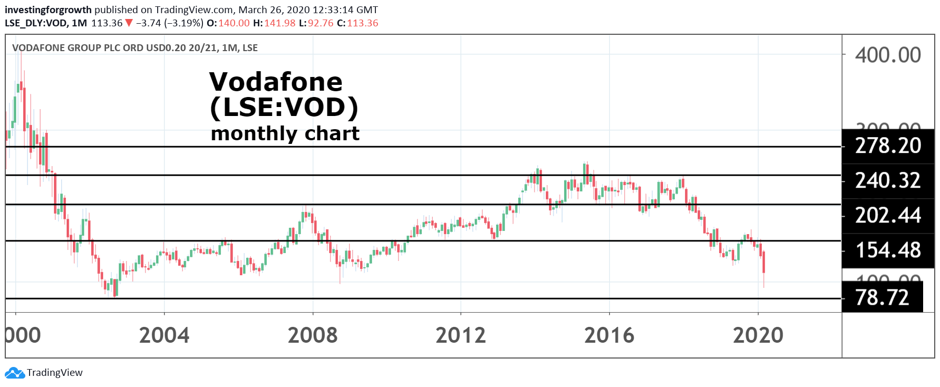11 UK stocks where experts think the dividend is safe
High-profile analysts update their basket of stocks with a low probability of cutting the dividend.
26th March 2020 12:43
by Graeme Evans from interactive investor
High-profile analysts update their basket of stocks with a low probability of cutting the dividend.

With no dividends at Marks & Spencer (LSE:MKS), ITV (LSE:ITV) and William Hill (LSE:WMH) and even Royal Dutch Shell's (LSE:RDSB) under threat, income investors could be forgiven for fearing that no pay-out is safe at the moment.
However, a research note published today by Morgan Stanley offers some reassurance following the recent tsunami of dividend cuts as companies focus on conserving cash reserves.
- Invest with ii: Top UK Shares | Super 60 Investment Ideas | Open a Trading Account
In the note, the US-based investment bank names 35 European high-yielders where its analysts believe the dividend will be secure. There are 11 London-listed stocks in the basket — BAE Systems (LSE:BA.), British American Tobacco (LSE:BATS), Daily Mail and General Trust (LSE:DMGT), Direct Line Insurance (LSE:DLG), Hikma Pharmaceuticals (LSE:HIK), Morrisons (LSE:MRW), National Grid (LSE:NG.), Sainsbury's (LSE:SBRY), Severn Trent (LSE:SVT), Unilever (LSE:ULVR) and Vodafone (LSE:VOD).
- Share trades that could have made you back a fortune
- Royal Dutch Shell moves to defend the dividend
- Stockwatch: Can you trust Shell’s 15% dividend yield?
- Income hunters can find great funds on ii’s Super 60 recommended list of investments
There's no place on the list for income favourites GlaxoSmithKline (LSE:GSK), BP (LSE:BP.) or Royal Dutch Shell, with the bank warning of dividend cuts of 40% to 50% in the oil sector later this year.
Shell's proven cash flows have underpinned its pay-out every year since the Second World War, so a cut would be a massive blow for pension funds and income investors alike. Now yielding 15%, the company is taking steps to readjust to a world of oil prices below US$30.

Source: TradingView Past performance is not a guide to future performance
But these are extraordinary times, as highlighted by the many blue-chip dividend favourites axing their dividend in their entirety. High-yielding housebuilders Taylor Wimpey (LSE:TW.) and Persimmon (LSE:PSN), for example, this week jettisoned their awards in order to preserve cash.
The cancelled dividends at Marks & Spencer and ITV (LSE:ITV) will save £132 million and £216 million respectively, with the story repeated across various sectors. The biggest threat to incomes comes from the financial and energy sectors, with both contributing 22% of UK dividends.
At this time of national crisis, the need for balance sheet prudence and for companies not to be seen to be rewarding shareholders, means the dividend cuts announced so far have been met with little resistance. Banks, in particular, are likely to be encouraged to curb dividends in order to support the economy.
The note from Morgan Stanley thinks that a lot of the dividend cuts now appear to be priced into the market. It added that stocks with high and secure dividend yields were now one of the few remaining sources of attractively valued assets with some defensive characteristics.
- A checklist for finding dividend shares in a crisis
- AIM dividends: Who’s cutting and who’s raising the payout
This has prompted it to update its basket of stocks with a low probability of a dividend cut over the next two to three years. Entry is based on four criteria, including estimates for a yield close to 4% or more in each year from 2020-22 and a dividend at least flat over the next three years.
The basket currently offers an average 2020 dividend yield of 4.9%, which is 40 basis points higher than the median stock in Europe. It also boasts three-year compound annual growth of 4.7%, which is in line with the wider market.
One of the highest profile UK stocks on the list is Vodafone, which only cut its dividend for the first time just under a year ago. It has done a good job restoring shareholder confidence since then, although that hasn't spared its shares in the current market sell-off.

Source: TradingView Past performance is not a guide to future performance
The mobile phone giant is among the highest yielding in the basket at 7.6% for 2020, with compound growth across the next three years of 2%. British American Tobacco (LSE:BATS) is another defensive stock that will feature in many investor portfolios, given the company's ability to generate prodigious amounts of cash.
Despite the challenges facing the tobacco industry from e-cigarette regulation, the “sin stocks” are still attractive for dividend income, with BAT's 2020 yield at 9%. However, its dividend pay-out ratio of 67% is a little higher than the 60% seen across the rest of the basket.
Supermarkets Sainsbury's and Morrisons are defensive plays in the current climate, with dividend yields of 5.1% and 4.3%, while utilities Severn Trent (LSE:SVT) and National Grid feature on the list with 2020 yields of 4.9% and 5.9% respectively.
One stock tipped as a speculative income play by our own Lee Wild at the end of last year also features. Direct Line Insurance trades with a forward yield of 9.1% and forecast three-year dividend growth of 3%.
These articles are provided for information purposes only. Occasionally, an opinion about whether to buy or sell a specific investment may be provided by third parties. The content is not intended to be a personal recommendation to buy or sell any financial instrument or product, or to adopt any investment strategy as it is not provided based on an assessment of your investing knowledge and experience, your financial situation or your investment objectives. The value of your investments, and the income derived from them, may go down as well as up. You may not get back all the money that you invest. The investments referred to in this article may not be suitable for all investors, and if in doubt, an investor should seek advice from a qualified investment adviser.
Full performance can be found on the company or index summary page on the interactive investor website. Simply click on the company's or index name highlighted in the article.